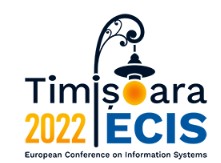Paper Number
1452
Abstract
Accelerated by the COVID-19 pandemic, remote e-working has become commonplace for knowledge workers around the world. This has spurred an immense uptick in employees’ use of collaboration systems (e.g., communications platforms, videoconferencing tools), raising the question how effective collaboration systems should be designed. To explore this, we interview 19 knowledge workers of various backgrounds (e.g., from chemicals, industrial, and consumer goods companies) and draw on the theoretical lens of the duality of technostress and the challenge-hindrance stressor framework to identify technology-driven challenge and hindrance stressors manifested in collaboration systems. Based on this understanding of the opportunities and threats represented by collaboration systems use, we follow a design science approach to propose general design requirements for such systems and derive tentative design principles to address identified stressor facets. We conclude by providing an outlook on next steps in the design science approach and drawing implications for researchers, designers, organizations, and users.
Recommended Citation
Reinelt, Annika and Benlian, Alexander, "Working Remotely, But Not Remotely Stress-Free: Identifying Technostressors in and Design Principles for Collaboration Systems" (2022). ECIS 2022 Research Papers. 84.
https://aisel.aisnet.org/ecis2022_rp/84
When commenting on articles, please be friendly, welcoming, respectful and abide by the AIS eLibrary Discussion Thread Code of Conduct posted here.


